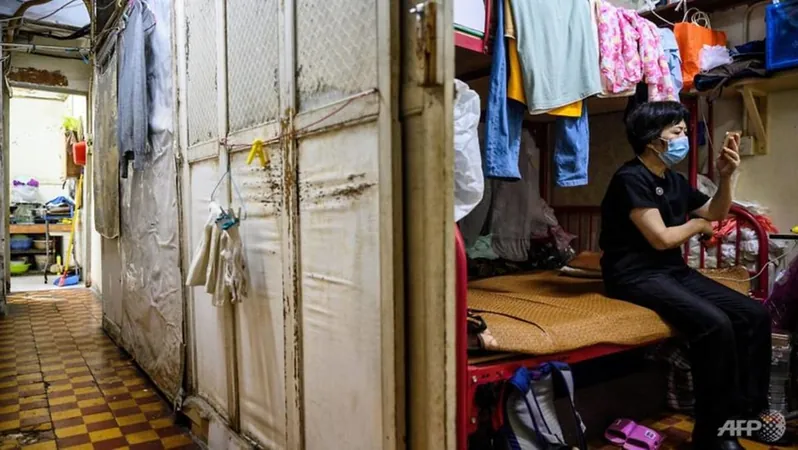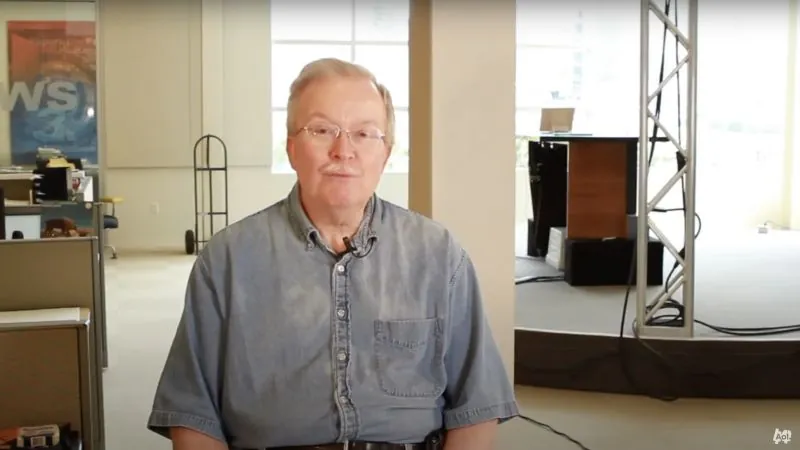
Hong Kong’s Illusion of Progress: 'Basic Housing Units' Cannot Mask the Undertones of Inequality
2024-11-03
Author: Ying
HONG KONG: In 1993, I embarked on my journey as a journalist in Hong Kong, a city heralded for its vibrancy and economic dynamism. However, it wasn’t long before I was confronted by the stark realities of its housing crisis, particularly the disturbing existence of "cage homes." These homes, where elderly retirees and the lower-income workforce found themselves sleeping in cramped bunks surrounded by wire cages, revealed the darker side of a metropolis often celebrated for its wealth.
Back then, it was not uncommon for dozens of disenfranchised individuals to share a mere 400 to 500 sq ft flat, often fighting for access to a single toilet. Such living conditions were stark indicators of the growing inequality that Hong Kong masked behind its financial success. The city's political and economic elite, it seemed, preferred to sweep this stark reality under the rug, hoping that what is effectively "out of sight" would also be "out of mind."
Fast forward three decades, and it is troubling to note that the plight of Hong Kong’s marginalized residents has seen scant improvement. Today, while there are fewer cage homes — down to about 5,000 from 53,200 in 2007 — approximately 215,000 of the city’s 7.4 million residents are crammed into what are dubbed "shoebox-sized homes" or subdivided flats. These structures consist of tiny, hastily built plywood cubicles, each sporting its own door but often lacking basic amenities.
An Inadequate Rebranding
In a policy address this October, Hong Kong's Chief Executive John Lee announced a government task force aimed at addressing this longstanding crisis. However, instead of implementing substantial reforms, the administration opted for a superficial change — rebranding these subdivided units as "basic housing units" (BHUs) to soften their undesirable image.
Under new regulations, each BHU must meet a minimum size of 8 sq m, furnished with one window and one toilet. To put this into perspective, 8 sq m is only marginally larger than the space allocated to inmates at the city's maximum-security prisons, which raises serious questions about the adequacy of these living conditions.
The authorities deemed this size acceptable, fearing a surge of panic among residents if the minimum were set at a more reasonable 10 sq m, which would have rendered half of the existing units uninhabitable.
Despite this small step, many critics argue that the initiative is reactive at best, coming years too late and lacking the ambition necessary to tackle the city's deep-rooted inequality.
A Response to Growing Unrest
The government’s latest endeavors seem spurred by mounting public discontent over economic inequality and the exorbitant property prices that, coupled with these squalid living conditions, fueled the protests that erupted in 2019. The situation was worsened by a response from Beijing that tightened control over the city, emphasizing housing as a critical social issue.
In his address, Lee acknowledged the affordable housing crisis as a pressing public concern. Notably, high-ranking officials from Beijing, including President Xi Jinping, have frequently urged Hong Kong to prioritize the wellbeing of its citizens by tackling housing issues.
In 2021, Xia Baolong, a prominent Chinese official overseeing Hong Kong affairs, stated a bold ambition: eliminate cage homes and subdivided flats by 2049. If such a challenge were issued within mainland China, local governments would swiftly implement systematic reforms. However, in Hong Kong, it took over three years for officials to propose a timid plan focused on renaming and marginally improving existing structures.
The keg of inequality in Hong Kong continues to simmer, with recent reports revealing that over 1.39 million individuals were living in poverty — a staggering 20.2% of the population. The wealth disparity is alarming, with the poorest 10% surviving on a mere HK$1,600 (US$205) a month, while the wealthiest households earned 82 times as much.
Hong Kong's ongoing struggles mirror a broader global issue of wealth concentration and housing affordability. While the government's recent moves to address these shortcomings are a small step forward, they fall woefully short of what is needed.
Hong Kong must embrace bold reforms to address its rising economic and social inequalities. The city has much to learn from Beijing’s concerted efforts to eradicate poverty over recent years. In 2015, Xi vowed to lift nearly 100 million people out of poverty, showcasing a dedicated, whole-of-government effort to tackle historical inequities.
Until Hong Kong’s leaders commit to similar ambition and long-term planning, the sorry state of housing will remain a glaring symptom of an inequality crisis that cannot be ignored.



 Brasil (PT)
Brasil (PT)
 Canada (EN)
Canada (EN)
 Chile (ES)
Chile (ES)
 España (ES)
España (ES)
 France (FR)
France (FR)
 Hong Kong (EN)
Hong Kong (EN)
 Italia (IT)
Italia (IT)
 日本 (JA)
日本 (JA)
 Magyarország (HU)
Magyarország (HU)
 Norge (NO)
Norge (NO)
 Polska (PL)
Polska (PL)
 Schweiz (DE)
Schweiz (DE)
 Singapore (EN)
Singapore (EN)
 Sverige (SV)
Sverige (SV)
 Suomi (FI)
Suomi (FI)
 Türkiye (TR)
Türkiye (TR)